Adam Schechter is an experienced healthcare executive and the chairman and CEO of Labcorp. Prior to this, Adam held several leadership roles at Merck, including executive vice president and president of global human health. Adam is the board chair for Water.org, the chair of the National Alliance for Hispanic Health’s Corporate Advisory Council, and the executive advisor to the Healthy Americas Foundation. He holds a bachelor’s degree in Biology from La Salle University and was awarded an honorary doctorate degree by the university in 2021.
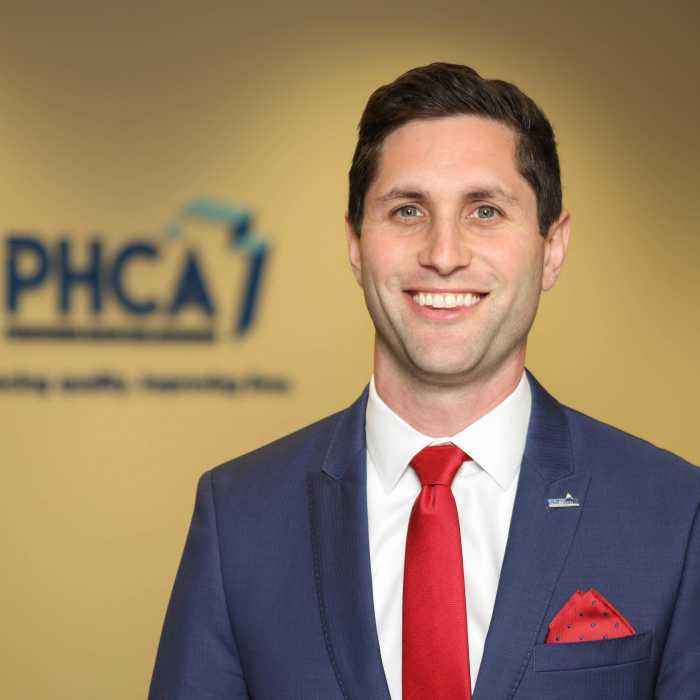
Zach Shamberg
President and CEO, Pennsylvania Health Care Association

Zach Shamberg is the president and CEO of the Pennsylvania Health Care Association, which advocates for long-term care providers, workers, and the residents they care for throughout Pennsylvania. Zach is the former director of government affairs at PHCA. Previously, he served as chief of staff to State Representative Todd Stephens. Zach is a passionate advocate for older adults in Pennsylvania, including his own grandfather, who currently resides in a personal care home.
What can Pennsylvania policymakers do to ensure equitable access to quality healthcare?
It’s important that policymakers recognize long-term care as a critical component of the healthcare continuum of care. Without long-term care, our vulnerable population will lose essential services, forcing hospitals to become more overwhelmed. In the 2022-23 state budget, policymakers demonstrated a commitment to long-term care by approving a long-overdue Medicaid reimbursement increase and stimulus funds to support senior care. Long-term care serves seniors and adults with disabilities who are on fixed incomes or reliant on government funding to cover their cost of care. Forward-thinking policies and investments in senior care will continue to advance, sustain, and expand access to this essential care.
When and why did you decide to pursue a career in healthcare?
I grew up in and around long-term care. My immediate family members and close friends have worked in nursing homes and hospitals for more than 30 years. It wasn’t until my grandfather was diagnosed with dementia, nearly 10 years ago, that I truly saw the importance of the dedication and determination of the long-term care workforce. It’s inspiring to see providers and caregivers make caring for our most vulnerable population part of their daily mission.
How do you see the healthcare industry evolving in the next five years?
It can be scary to think about the future of healthcare, especially in Pennsylvania, which has one of the oldest populations in the country. All industries are facing workforce challenges, but none more than healthcare–particularly long-term care. For healthcare to evolve, we must first build a sustainable workforce pipeline, while simultaneously freeing our workers and providers from a punitive regulatory environment and predatory legal climate. Only when providers, caregivers, and state leaders work together will we experience true evolution that will ultimately benefit our residents.
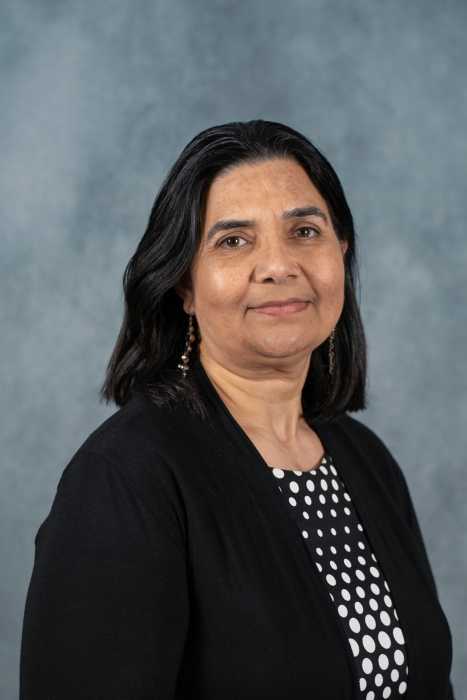
Sushma Sharma
Vice President of Health Care Research, The Hospital and Healthsystem Association of Pennsylvania

Dr. Sushma Sharma is the vice president of health care research at The Hospital and Healthsystem Association of Pennsylvania and the director of HAP’s Center for Health Policy Research. As a researcher with 20 years of post-doctoral experience, she leads data and research efforts supporting Pennsylvania hospital policy priorities and works to improve population health. Before joining HAP, Dr. Sharma led research and population health efforts for the Dallas-Fort Worth Hospital Council and conducted health research as a scientist at the University of California, Berkeley, and in the United Kingdom.
What can Pennsylvania policymakers do to ensure equitable access to quality healthcare?
All stakeholders–including policymakers, community-based organizations, healthcare providers, and community leaders–must work collaboratively to recognize the health disparities that exist throughout the commonwealth and ensure equitable access to quality healthcare for all Pennsylvanians. This includes addressing socioeconomic factors that affect health outcomes, eliminating racial inequities in care, and removing barriers related to language, ability, resources, internet connectivity, and access to transportation. Pennsylvania must also work to grow and strengthen its healthcare workforce to ensure that we have the healthcare professionals needed to care for Pennsylvanians now and into the future.
When and why did you decide to pursue a career in healthcare?
I was attracted to the data science aspect of healthcare and how I could translate data and evidence-based information into bettering community health and improving equitable access to care. Already a healthcare researcher, I transitioned into the hospital world in 2013 when I joined the Dallas-Fort Worth Hospital Council in Texas. At HAP, I use data to address issues such as behavioral healthcare access, supporting the healthcare workforce, and expanding telehealth.
How do you see the healthcare industry evolving in the next five years?
In recent years, we have witnessed a major shift in how care is delivered, and I am optimistic that it will lead to better health. COVID-19 prompted an acceleration of telehealth, which has been a transformational change in the industry that has improved access to care and health outcomes. I am also excited about advances made possible by AI and machine learning, as well as wearable devices that improve wellness. I am most excited to see healthcare beginning to embrace data as a way to provide patient-tailored care and resources, address social determinants of health, and, ultimately, improve health outcomes.
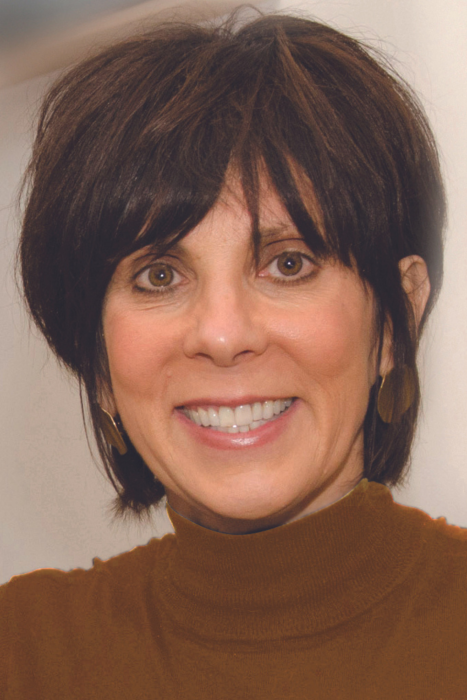
Dayle Steinberg
President and CEO, Planned Parenthood Southeastern Pennsylvania

Dayle Steinberg is the president and CEO of Planned Parenthood Southeastern Pennsylvania. She has reinforced her commitment to sexual and reproductive health and rights by dedicating her professional career to Planned Parenthood and its mission. PPSP serves more than 65,000 people through its 10 health centers, education programs, and advocacy initiatives. Dayle also serves as a board member of Planned Parenthood Pennsylvania Advocates, an organization that engages in Planned Parenthood’s extensive electoral, organizing, and lobbying efforts.
What can Pennsylvania policymakers do to ensure equitable access to quality healthcare?
Policymakers should be working to eliminate barriers to healthcare that disproportionately affect Black, Latino, Indigenous, LGBTQ+, and low-income people. They should work in collaboration with healthcare providers and insurance companies to increase coverage of preventive services, ensure funding and reimbursement for quality care, and promote data collection to aid in the equitable provision of services across health systems. Policies that fund the training of safety-net providers and promote and protect access to sexual and reproductive health services including abortion are essential to the lives of the patients we serve and the health of our communities.

Billie Swiggard
Staff Physician, Mazzoni Center

Dr. Billie Swiggard is a trans woman and a staff physician at Mazzoni Center. She is a graduate of Weill Medical College of Cornell University and holds a PhD in Immunology from Rockefeller University, where she was mentored by 2011 Nobel Prize laureate Ralph Steinman. She completed her residency and fellowship in infectious diseases at the University of Pennsylvania. Before returning home to Philadelphia in 2021, Dr. Swiggard worked as a full-time infectious disease specialist at Cooley Dickinson Hospital and at Holyoke Health Center, a federally-qualified health center funded by the Ryan White Program. Though Dr. Swiggard knew she was trans in early childhood, she began her gender transition three years ago, at age 67.
What can Pennsylvania policymakers do to ensure equitable access to quality healthcare?
If we are to achieve the federally mandated goal of Ending the HIV Epidemic by 2030, all people at risk for HIV infection must take PrEP. Currently, only about 25% of the folks who would benefit from PrEP are actually taking it. In the African American community, the rate is six percent, which is far lower. In the Latino community, it’s just 16%, according to the latest CDC data from 2019. Our Commonwealth must establish a government-sponsored PrEP assistance program and dedicated community outreach to ensure that all people at risk receive PrEP medications free of charge.
When and why did you decide to pursue a career in healthcare?
Medicine is my second career. I started in showbiz: Hair at age 19 followed by two other Broadway shows and three national tours. In the mid-80s, many of my beautiful, talented friends began dying horrifically. One friend haunts me still. He contracted HIV with wasting, blindness, and diffuse KS. He died at 28. I literally stood at his grave and realized I had to go back to school to learn to fight AIDS.
How do you see the healthcare industry evolving in the next five years?
Because quality healthcare is a human right, I think a government sponsored universal healthcare system is the only sane and ethical alternative to our current bloated, inefficient, profit-hungry healthcare system. Achieving it will be hard, but just as John F. Kennedy said in 1962 about humans landing on the moon, “…that goal will serve to organize and measure the best of our energies and skills, because that challenge is one that we are willing to accept, one we are unwilling to postpone, and one which we intend to win.”

Adriana Torres-O’Connor
President and CEO, Mental Health Partnerships

Dr. Adriana Torres-O’Connor, PsyD, MBA, MSW, is the president and CEO of Mental Health Partnerships, a peer-centered recovery organization transforming mental health through advocacy, programs, and training for individuals and families struggling with mental health and addiction challenges. Dr. Torres-O’Connor is the first Latina to lead MHP in its 70-plus-year history. She is a licensed clinical psychologist with over 20 years of experience working in community mental health.
What can Pennsylvania policymakers do to ensure equitable access to quality healthcare?
Parity was mandated through legislation, but true execution has not been achieved. The range and benefits for mental health and substance use disorder treatment and services are more limited than those for medical and surgical care across health insurers and plans. For example, peer support, which is a mental health evidence-based practice, is not covered by most insurers or plans in Pennsylvania. Policymakers have the ethical responsibility to ensure that treatments and services that support whole-person health are available to all, regardless of their socioeconomic status, health insurer, or health plan. Independent auditing and oversight are some ways to ensure equity.
When and why did you decide to pursue a career in healthcare?
I grew up in a family that valued diversity and giving back. My mother was a social worker and my father was an immigrant from Colombia. He experienced discrimination and racism, and I witnessed that growing up. My life experiences and values drew me to a career in community mental health. This field allows me to integrate my experiences, strengths, and values in the service of others who are often marginalized and vulnerable.
How do you see the healthcare industry evolving in the next five years?
The future of healthcare will be defined by the consequences of the COVID-19 pandemic. The impact on mental health had greater consequences than people want to admit. Mental illnesses were among the most common health conditions prior to the COVID-19 pandemic, and that has increased at least four-fold. Moving forward, the healthcare industry must focus on whole-person health, where mental health is valued at the same level of importance and reimbursement as physical health. I believe the practitioners, providers, and insurers that truly embrace an authentic whole-person healthcare approach will achieve better patient and systemic outcomes.
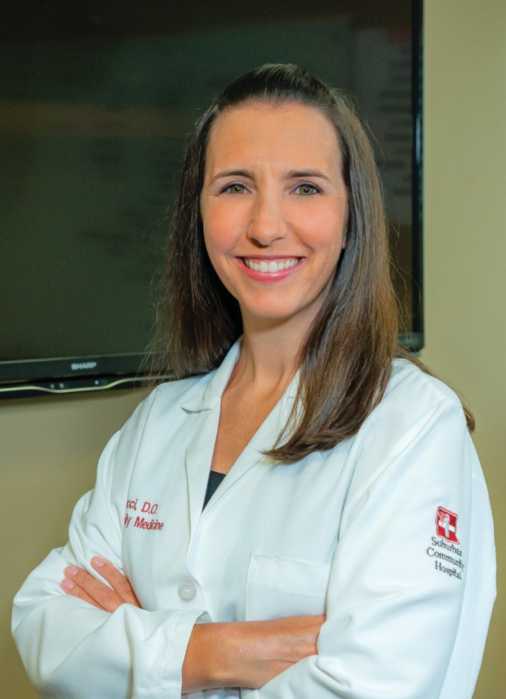
Mary Elizabeth Vitucci
Director of Medical Education, Director of Osteopathic Education, Family Medicine Residency Associate Program Director, and Family Medicine Doctor, Suburban Community Hospital

Dr. Mary Elizabeth Vitucci is a graduate of the Philadelphia College of Osteopathic Medicine. She completed her residency in family medicine at Mercy Suburban Hospital, where she served as the chief intern and subsequently as the chief resident. Dr. Vitucci is the director of medical education and the director of osteopathic education at Suburban Community Hospital, where she also serves as the associate program director of the Family Medicine Residency. Dr. Vitucci is an associate faculty member at the Philadelphia College of Osteopathic Medicine and is board-certified in family medicine by the American Osteopathic Board of Family Physicians.
What can Pennsylvania policymakers do to ensure equitable access to quality healthcare?
Pennsylvania policymakers should work on ensuring access to affordable health insurance plans for those who do not qualify for Medicaid. Furthermore, they must support programs that encourage a healthy lifestyle in our communities. Access to quality healthcare is not just seeing a doctor to treat a disease; access to quality healthcare includes programs that support healthy lifestyles and preventive medicine. When members of the community have access to healthy foods and safe spaces to get healthy physical activity, we can promote health.
When and why did you decide to pursue a career in healthcare?
Being a physician is something I have always felt called to do. I love the unique aspects of family medicine, specifically because I get to form bonds with and treat multiple generations of families. Working with residents and medical students allows me to teach and learn from our future physicians. My career in health care is both challenging and rewarding, and I continue to choose to do it every day!
How do you see the healthcare industry evolving in the next five years?
My hope for the healthcare industry’s evolution over the next five years is that we can provide greater support to our patients and reduce administrative burdens on physicians. By reducing administrative burdens, physicians will have more time to foster their relationships with their patients, promote a healthy lifestyle, and practice preventive medicine in addition to treating disease. I hope we can evolve to do more to promote health.
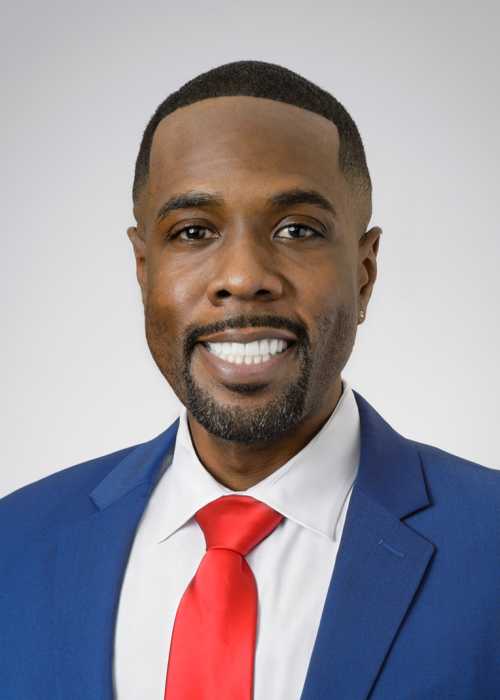
Maurice Washington
CEO, Haven Behavioral Hospital of Philadelphia

Philadelphia native Maurice Washington graduated from Central High School and attended Penn State University. Maurice then obtained his master’s degree in Nursing from La Salle University, where he is currently in his last year of doctoral studies. He has worked as a healthcare executive throughout the US as a chief nursing officer and CEO. He has a passion for mental health and believes that providing safe and therapeutic spaces is paramount in ensuring patient recovery. He enjoys the work he does and hopes to make a difference in the lives of the people he serves.
What can Pennsylvania policymakers do to ensure equitable access to quality healthcare?
In the realm of mental health, I believe Pennsylvania policymakers should prioritize mental health resources for all communities in the state. This includes creating opportunities for healthcare organizations to provide different levels of mental health treatment modalities.
When and why did you decide to pursue a career in healthcare?
I knew I wanted a career in healthcare from a very young age. Upon graduating from high school, I immediately applied to different nursing schools, as I believed being a nurse would satisfy my desire to help others. My focus then shifted to leadership roles as I became aware of the positive impact that I could have on transforming care to a higher level of excellence.
How do you see the healthcare industry evolving in the next five years?
I believe there will be a tremendous focus on mental health given all of the significant stressors that we are currently facing as a society. The healthcare industry will need to make mental health as much of a priority as physical health in order to meet the needs of people seeking services.
Mark Watkins
Staff Physician, Mazzoni Center
Dr. Mark Watkins is a family medicine specialist with over 30 years of experience and a staff physician at Mazzoni Center. Dr. Watkins specializes in caring for LGBTQ+ folks and individuals with HIV and AIDS. He was awarded the Vitals Patients Choice Award in 2008, 2009, 2013, and 2014 for the impact he made in the lives of his patients. He graduated from the Philadelphia College of Osteopathic Medicine in 1986 and joined the Mazzoni Center in 2016.

David West
Co-Founder and CEO, Proscia

David West is the CEO of Proscia, a software company advancing the way we diagnose and treat diseases like cancer through digital pathology and AI solutions. An entrepreneur and technologist with a background in computational biology, David founded Proscia in 2014 inspired by his research at Johns Hopkins. Proscia has since earned recognition as a market category leader, securing major diagnostic laboratories and 10 of the top 20 pharmaceutical companies as customers, and has raised $75 million. David was named to Forbes 30 Under 30 and has a bachelor’s degree in Biomedical Engineering from Johns Hopkins University.
When and why did you decide to pursue a career in healthcare?
Cancer is a big problem for humanity. It’s also personal. My passion lies at the intersection of medicine and technology, where I saw an opportunity to make a difference for millions of patients. I started in digital and computational pathology at Hopkins when it was an academic niche. We knew the data in tissue images could be transformational–however, technology for leveraging it lacked a bridge to the real world. Proscia is building this bridge.
How do you see the healthcare industry evolving in the next five years?
Healthcare will become increasingly data-driven. Digital transformation has generated unprecedented volumes of data; meanwhile, software and AI advancements are enabling us to leverage it in countless new ways. Consider pathology. A typical pathology image is more than a gigabyte, which is two to 10 times larger than a radiology image. We estimate that one billion images will be created annually over the next five to 10 years. Before, this data would have been on glass slides collecting dust, but now, it can be used to develop next-generation treatments and diagnostics. There is more health data than we can handle, even today. Computers will be critical in helping make sense of it.


